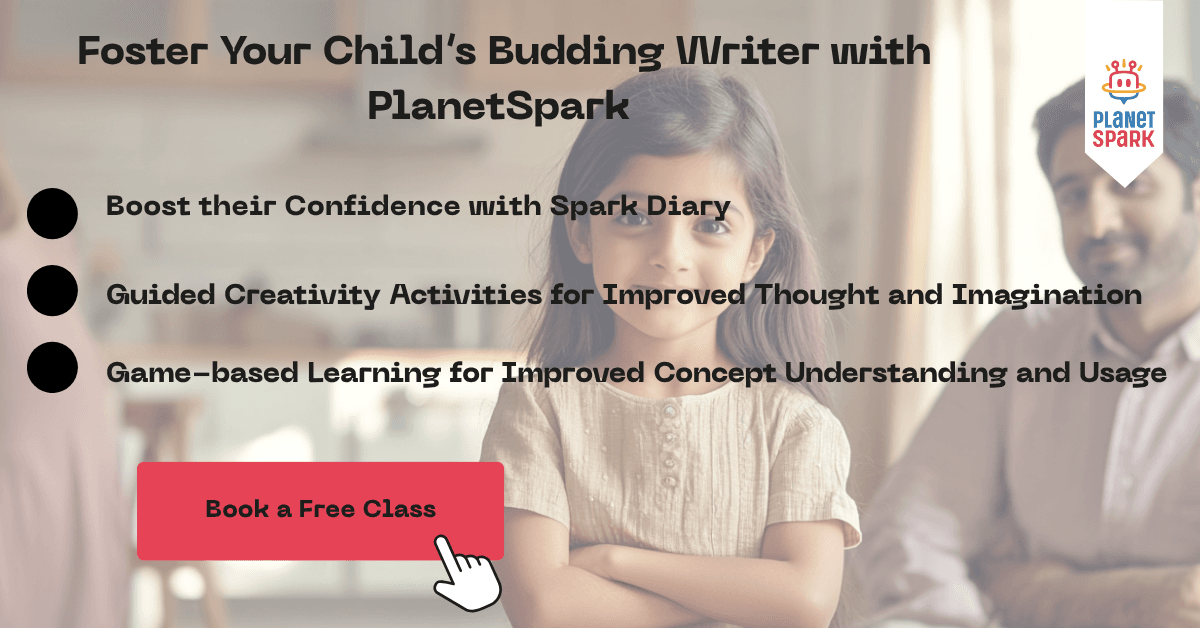What Is Communism? Learn Through Creative Writing at PlanetSpark
Last Updated At: 15 Jul 2025
9 min read

Table of Contents
- Origin of Communism
- Core Principles of Communism
- Communism in Practice
- Key Features of a Communist Economy
- Differences Between Communism and Socialism
- Communism vs Capitalism
- Major Historical Communist Movements
- The Decline of Communism in the 20th Century
- Modern-Day Interpretations and Adaptations of Communism
- Public Perception and Ongoing Debate
- PlanetSpark’s Creative Writing Course: Empowering Young Thin
- FAQs on PlanetSpark’s Creative Writing Course
Communism is one of the most widely discussed political ideologies in modern history. Rooted in the idea of a classless and stateless society, communism proposes that all means of production, property, and wealth should be owned collectively by the state or the people. It envisions a system where economic inequalities are eliminated and every citizen receives equal access to resources, employment, and education. Over time, this ideology has influenced revolutions, sparked political debates, and shaped the governance of several nations.
Though communism offers an idealistic vision of equality and fairness, its real-world application has faced significant criticism and challenges. From historical revolutions to current-day governments, the principles of communism have evolved and adapted in various forms. This article explores the roots of communism, its core beliefs, its advantages and drawbacks, and its relevance today. Additionally, we’ll highlight how platforms like PlanetSpark are fostering critical thinking and communication skills in young learners through creative writing, an essential tool for understanding and expressing complex ideas like communism.
Origin of Communism
The foundation of communism was laid by Karl Marx and Friedrich Engels, who introduced the concept in their groundbreaking work The Communist Manifesto in 1848. This book is considered the cornerstone of communist ideology, laying out a vision for a society free from class struggles and economic inequality.
Historical Background
The ideas behind communism were further developed during the French Revolution, where class struggles between the wealthy bourgeoisie and the laboring proletariat became pronounced. The working class, which provided labor but lacked ownership or wealth, began demanding a system that allowed collective control over production and wealth. This gave rise to the belief that societal resources should not be owned by individuals or corporations but managed by the state for the benefit of all.
Core Principles of Communism
- Abolition of class divisions
- Common ownership of property and resources
- Centralized control of economic planning
- Equal access to education, healthcare, and employment
- Prioritization of collective welfare over individual profit
Communism in Practice
While communism promises equality and fairness, its implementation has often diverged from its theoretical ideals. In 1985, approximately one-third of the global population lived under communist regimes. However, political and economic challenges have led to a sharp decline in such systems.

Current Communist Nations
Only a few countries continue to operate under communist ideologies today:
- China
- North Korea
- Laos
- Cuba
- Vietnam
In these nations, central governments control political power and economic resources. However, several of them now allow limited private enterprise and ownership, blending communist principles with elements of capitalism.
Help your child understand such complex systems through powerful storytelling. Enroll them for a PlanetSpark Creative Writing trial session today.
Key Features of a Communist Economy
- A communist economy is based on the principle of collective ownership.
- All factories, farms, and businesses are owned and managed by the government on behalf of the people.
- Private ownership of production is not allowed.
- Wealth is redistributed to eliminate social and economic disparities.
- The government centrally plans the economy, determining:
- What goods and services are produced
- How are they distributed
- The pricing of these goods and services
- In contrast to capitalist economies driven by market demand, communist economies:
- Aim to meet the basic needs of all citizens
- Ensure equal access to essentials such as food, housing, education, and healthcare
- May experience reduced innovation and efficiency due to a lack of competition and profit-driven incentives
Differences Between Communism and Socialism
Although communism and socialism are often used interchangeably, they are fundamentally different ideologies. Both aim for economic equality, but they differ in ownership and governance models.
- Ownership: In communism, all property is owned by the state. In socialism, property and production may be publicly owned, but there is allowance for private ownership in many areas.
- Governance: Communism is typically associated with authoritarian regimes, while socialism can operate within democratic frameworks.
- Wealth Distribution: Socialism seeks to reduce income inequality through taxation and welfare, while communism eliminates income inequality.
Communism vs Capitalism
Capitalism is an economic system where trade, industries, and the means of production are privately owned and operated for profit. This contrasts sharply with communism, where everything is publicly owned and operated for the collective benefit.
Major Differences:
| Aspect | Communism | Capitalism |
|---|---|---|
| Ownership | State or collective | Private individuals |
| Economic Planning | Centralized | Market-driven |
| Wealth Distribution | Equal among all | Based on individual success |
| Innovation | Limited, government-driven | High, profit-driven |
| Class Structure | Classless | Stratified by income and wealth |
Major Historical Communist Movements
The Russian Revolution (1917)
Led by Vladimir Lenin, the Bolsheviks overthrew the Russian monarchy and established the first communist state, later becoming the Soviet Union. This marked the beginning of a new political order based on Marxist ideology.
The Chinese Communist Revolution (1949)
Led by Mao Zedong, this revolution resulted in the establishment of the People’s Republic of China. Mao implemented sweeping reforms such as land redistribution and collective farming, although these policies caused economic turmoil and famine.
The Cuban Revolution (1959)
Fidel Castro’s guerrilla movement overthrew the U.S.-backed Batista regime, leading to a socialist state aligned with the Soviet Union. Cuba remains a communist country to this day.

The Decline of Communism in the 20th Century
Despite its initial momentum, communism began to decline by the late 20th century:
- Fall of the Berlin Wall (1989): This symbolized the collapse of communist regimes in Eastern Europe.
- Dissolution of the Soviet Union (1991): Marked the end of the largest communist state, breaking into 15 independent republics.
- Shift in China: While still governed by a communist party, China adopted market reforms under Deng Xiaoping to boost economic growth, creating a hybrid model.
Modern-Day Interpretations and Adaptations of Communism
- Very few countries today practice pure communism.
- Many have adopted mixed economies that blend elements of socialism and capitalism.
- China stands out as a notable example where:
- The Communist Party governs the state
- The economy operates with market-driven principles and private enterprise
- In academic and political discussions:
- "Neo-communism" and "eco-socialism" are gaining attention
- These ideologies aim to solve global issues like:
- Climate change
- Economic inequality
- They advocate for collective resource management
- Emphasize solutions without authoritarianism
Public Perception and Ongoing Debate
- Communism continues to be a polarizing ideology.
- Supporters argue it:
- Ensures social justice
- Eliminates poverty
- Guarantees access to basic needs
- Critics argue it:
- Leads to authoritarianism
- Suppresses freedoms
- Hampers innovation
- Supporters argue it:
- In education, communism serves as a powerful lens to:
- Analyze world history
- Understand different economic systems
- Examine social dynamics
- Therefore, it's essential to teach students how to:
- Think critically
- Write analytically
- Engage with complex ideologies effectively
Give your child the tools to explore such impactful topics with clarity. Register for a free PlanetSpark Creative Writing session today.
PlanetSpark’s Creative Writing Course: Empowering Young Thinkers
- Philosophy and Focus of the Course:
- PlanetSpark’s creative writing course is built on the philosophy that writing should empower children to:
- Think critically about the world around them
- Communicate confidently across various formats
- Express ideas clearly and creatively
- PlanetSpark’s creative writing course is built on the philosophy that writing should empower children to:
- Target Audience:
- The course is tailored for students from Grades 1 to 10
- Lessons are adapted to suit different age groups and learning levels
- Core Skill Areas Developed:
- Writing fluency: Enhancing sentence structure, flow, and clarity
- Grammar: Mastering usage, tenses, punctuation, and syntax
- Vocabulary: Expanding word banks through contextual learning
- Storytelling: Learning to build engaging narratives with proper structure and plot
- Creative expression: Writing poems, short stories, reflections, and persuasive essays
- 1:1 Live Classes with Expert Trainers:
- Students are paired with certified communication experts
- Trainers identify the child’s learning pace, interests, and unique challenges
- Live sessions include:
- Real-time corrections and encouragement
- Customised lesson delivery and feedback
- Collaborative writing and idea generation
- Innovative Tools and Learning Platforms:
- SparkX (AI-Driven Video Analysis Tool):
- Students upload recorded speeches or storytelling videos
- The tool provides analysis on:
- Voice clarity and pronunciation
- Body language and gestures
- Grammar usage and sentence structure
- Confidence and delivery
- Parents receive structured performance reports with improvement areas
- Spark Diary (Digital Writing Journal):
- Enables students to practice writing consistently
- Includes:
- Daily reflection prompts
- Creative challenges and exercises
- Space for poems, essays, and fictional pieces
- Helps build a writing habit while fostering imagination
- Gamified Learning Modules:
- Antonyms Quiz and Word Wisdom for vocabulary
- Spell Knockout and Listen & Spell to improve spelling
- Grammar Guru Challenge for grammar mastery
- Daily Fresh Quizzes based on ongoing concepts
- Keeps learners engaged and motivated through play-based learning
- SparkX (AI-Driven Video Analysis Tool):
- Real-Life Application and Public Expression:
- Students learn to write and present on complex subjects like communism, current affairs, and environmental issues
- Opportunities for:
- Storytelling contests
- Speech presentations
- Debates and discussions
- Builds presentation skills alongside writing ability
- Learning Progress Tracking:
- Regular Parent-Teacher Meetings (PTMs) to discuss student progress
- Structured progress reports shared every few weeks, evaluating:
- Content quality
- Grammar accuracy
- Expression and delivery
- Voice modulation and posture
- Trainers share action plans to work on specific challenges
- Community Learning and Peer Engagement:
- Students can join various clubs and learning communities, including:
- Debate Club
- Writers Guild
- Story Writing Club
- Comedy Club
- Speech and Poetry Circles
- Podcasting Club
- Encourages collaboration, teamwork, and social learning
- Students can join various clubs and learning communities, including:
- Safe Digital Expression Through Sparkline:
- PlanetSpark’s internal content-sharing platform for kids
- Children can post:
- Speeches and performances
- Creative writing pieces
- Moderated interactions promote a safe, appreciative environment
- Contests, Recognition, and Public Showcases:
- Students participate in:
- Creative writing challenges
- Speech and storytelling contests
- Open mic events and talent showcases
- Receive:
- Certificates and awards
- Digital badges and peer recognition
- A platform to shine and celebrate their voice
- Students participate in:
Experience the power of personalised writing mentorship. Book a free PlanetSpark session now.
FAQs on PlanetSpark’s Creative Writing Course
1. What skills will my child develop in PlanetSpark’s Creative Writing Course?
Your child will improve in grammar, vocabulary, sentence formation, creative storytelling, poetry, and public speaking.
2. Who teaches the PlanetSpark classes?
Classes are led by certified communication experts who personalise the sessions based on your child’s learning needs.
3. How is the curriculum personalised?
PlanetSpark begins with a skill assessment and builds a learning roadmap tailored to your child’s strengths and areas of improvement.
4. How does the course encourage writing practice?
The Spark Diary feature allows students to write daily and complete creative prompts, helping them build consistency and confidence.
5. What tools support progress tracking?
AI tools like SparkX analyse speech and writing videos, while trainers provide detailed progress reports and feedback.
6. Are there any contests or public events?
Yes. PlanetSpark organizes storytelling contests, writing challenges, open mics, and showcases where students can perform and win awards.
7. What makes this course different from regular school writing classes?
PlanetSpark offers a highly interactive, gamified, and individualised learning experience that goes beyond textbook writing, focusing on real-world communication skills.
Personalized Communication Report
Record a video to get a AI generated personalized communication report for your child
Select Learner's Class

Hi There, want to try these
tips for your child with
LIVE with our expert coach?
Let's check your child's
English fluency
